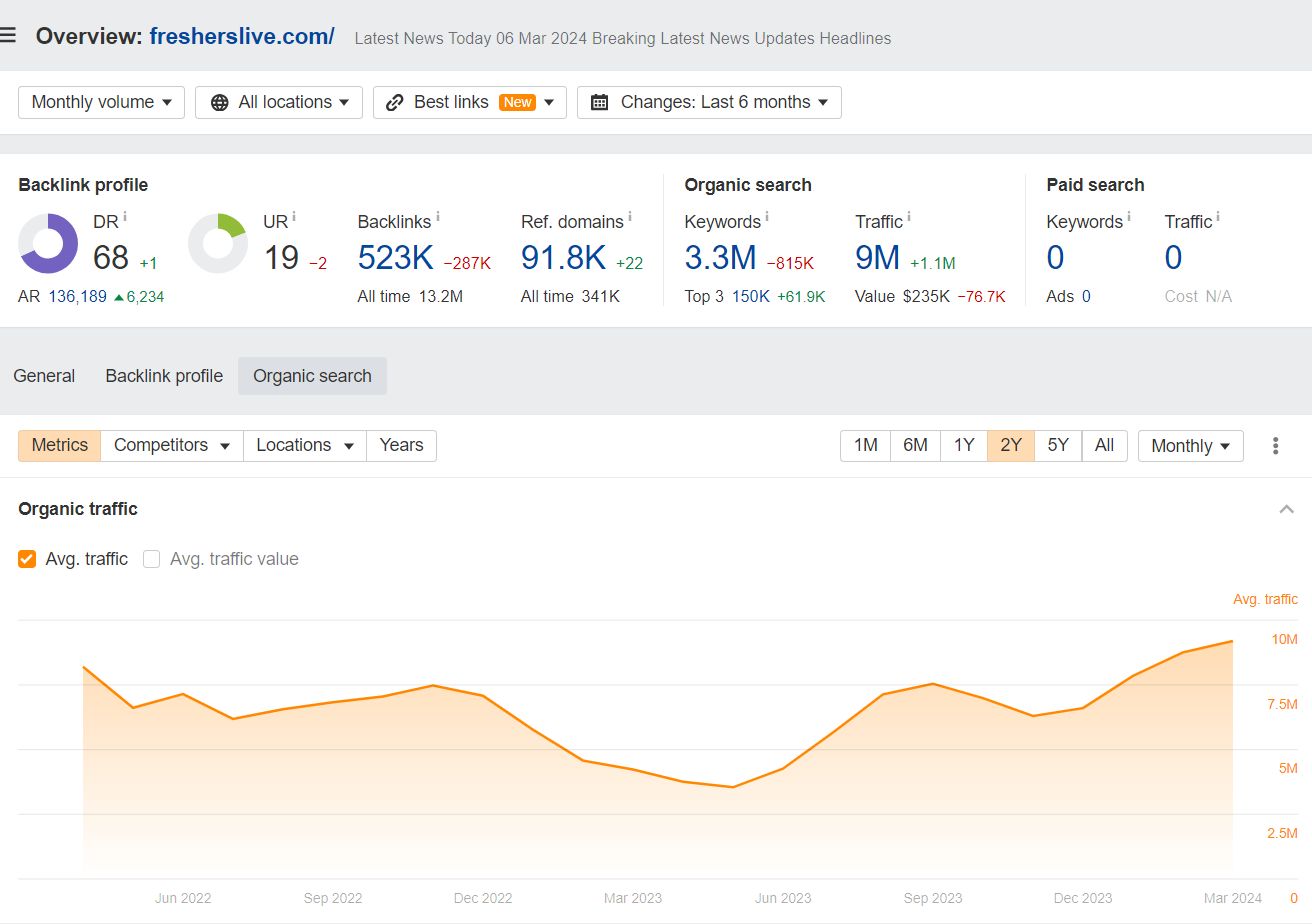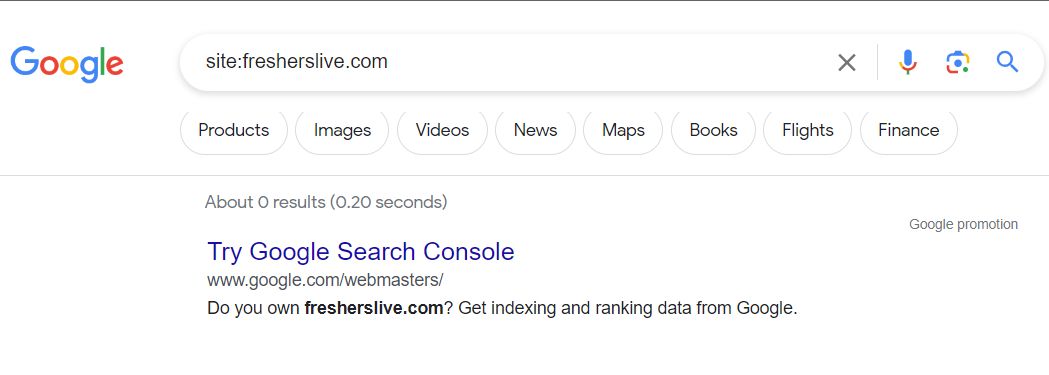It’s Official: Google is De-Indexing AI Content
Google rolled out a core update on March 5. Within hours, scores of websites that rely on AI content were deindexed.
Not sure where to start? I’m giving one complimentary SEO content strategy audit per week—contact me to get on the list.
Here’s a website that is known to publish almost entirely AI-generated content. Last week:

This week:

This website went from nine million monthly visitors to zero. Overnight, it seems. And it’s not the only one.
The official announcement from Google doesn’t mention AI content specifically … but that is definitely what the update was about.
The AI-generated / spam crackdown
What’s this all about? Google announced a new core update this week:
This is designed to improve the quality of Search by showing less content that feels like it was made to attract clicks, and more content that people find useful. We also shared that we have new spam policies to better handle the practices that can negatively impact Google’s search results.
What are those spam policies? There are three, related to:
- Expired domain abuse
- Scaled content abuse
- Site reputation abuse
None of these are new, but that second one—scaled content abuse—is probably the real culprit here.
ChatGPT and other gen AI models have been out in the wild for more than a year now, giving newfound power to lazy content creators. We’ve said from the beginning that AI is a tool like any other and with great power comes great responsibility: Good marketers will use it to more efficiently produce helpful, user-focused content … and spammers will use it to more efficiently produce their garbage content as well.
We always expected generative AI to flood the web with low-quality content, and here we are.
And Google is responding like it always has to black hat SEO tactics: with an algorithm update.
What does it mean for your SEO content strategy?
None of the updated spam policies represent anything new from Google. The only change is that AI is making these spam practices easier and more of a problem for search algorithms.
SEO is still, and always will be, about creating the best experience for your target audiences via organic search. Whether you’re using AI to help you do it or not, you need to do these things:
- Understand what your audience really needs when they query those keywords.
- Create a framework that allows you to prioritize your SEO opportunities based on efforts-vs-impact.
- Audit each need in organic search so you know exactly how to create the best, most helpful content for your audience at that moment.
And you need to do it consistently. It’s user-focused instead of keyword-based. It’s quality-over-quantity. It’s the only way to create reliable SEO results that scale, and it’s the only way to design a revenue-focused strategy.
Not sure where to start? I’m giving one complimentary SEO content strategy audit per week—contact me to get on the list.
Get in touch
What’s next?
There is more of this to come. Google has always, unapologetically said, “Create the best content.” Every algorithm update has been in pursuit of creating a great user experience and delivering the best content for each query.
Google also knows that AI content can do nothing but rehash content from other sites. AI content is not currently penalized, but Google knows that it’s never going to be the best of the best.
I wouldn’t be surprised if Google continues to come down harder and harder on AI content in the future.
